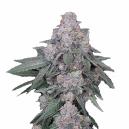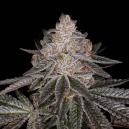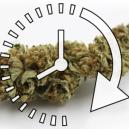Does CBD Have Side Effects?
Published : Nov 23, 2018

CBD has many health benefits. However, it can also produce some side effects, which, although mild, need to made clear to anyone thinking about using CBD products in the future.
DOES CBD PRODUCE SIDE EFFECTS?
We hear a lot of positive news about CBD and its various health benefits. From epilepsy and pain to neurodegenerative disorders like Alzheimer's, it seems there’s no condition that CBD can’t help tretraat. But besides all the positives, does CBD have any adverse side effects?
STUDIES SHOW CBD HAS MILD SIDE EFFECTS
A number of studies into CBD have made note of its side effects. Most of these studies used CBD to treat epilepsy and psychotic disorders, and compared its side effects to those of the regular medications used to treat these conditions.
Most of these studies reported the same side effects:
• Tiredness
• Diarrhoea
• Appetite/weight changes
Some other side effects of CBD may include:
• Headaches
• Dry mouth
• Lightheadedness/drowsiness
• Low blood pressure
Studies on patients with Parkinson’s disease also showed that high doses of CBD may enhance tremors in some patients.

IS CBD SAFE?
Yes, there is solid evidence that CBD is safe and tolerable in humans, even in large doses. For example, research shows that daily doses of up to 300mg produced no serious adverse effects, even when used for up to 6 months. Even daily doses of up to 1500mg have been well-tolerated by patients for up to 4 weeks.
It’s important to note that even though CBD can produce side effects in some patients, most of these side effects are mild when compared to those of other drugs. Anticonvulsants like those prescribed to epilepsy patients can cause vomiting, rashes, fatigue, vision changes, depression, ataxia, tremors, and more.
Painkillers, on the other hand, also have a variety of adverse effects. Non-steroidal anti-inflammatory drugs, for example, can cause acute symptoms like heartburn, stomach pain, stomach ulcers, headaches, dizziness, rashes, and much more. When used over long periods of time, NSAIDs can cause serious damage to the liver and kidneys.
Prescription painkillers like steroids and opioids also have a wide variety of intense side effects. Opioids in particular are highly addictive, and patients can quickly build up a tolerance against and dependence on these drugs. CBD, in comparison, produces only mild side effects, most of which can be avoided by properly administering and dosing the product.

HOW TO AVOID SIDE EFFECTS FROM CBD
Dosing is arguably the single biggest factor influencing a person’s response to CBD. By properly dosing CBD, you’re able to minimise your risk of an adverse reaction while still getting the most from the supplement.
The exact dose will obviously depend on the individual user and their medical history, symptoms, weight, and reasons for using CBD. Most online sources recommend CBD doses of 1–6mg for every 4.5kg of body weight. Ideally, you’ll want to start with the smallest dose and then gradually increase the dose until you experience the desired relief from your symptoms.
If you weigh 80kg, for example, you’ll want to start at low doses of around 18mg of CBD. To accurately prepare this dose, make sure you only use CBD products that are properly labelled with the exact total amount of CBD they contain. If you’re using a 30ml oil containing a total of 300mg CBD, for example, you’ll need just 1.8ml of oil for the minimum dose.
You’ll want to stick to this minimum dose for at least 1–2 weeks. Do not increase your dose rapidly, even if you feel like the CBD isn’t taking any effect. The idea here is to introduce your body gradually to this new supplement to minimise the chances of it producing any adverse effects.
Over time, you’ll want to increase your dose until your symptoms improve. Remember that this may take time as your body gets used to the new substance.
CBD CAN INTERACT WITH OTHER DRUGS
Perhaps the most serious side effect of CBD is its effect on liver enzymes. Studies show that CBD can inhibit the metabolism of other drugs because it affects cytochrome P450 liver enzymes. This family of enzymes is responsible for metabolising roughly 60% of all drugs on the market, including painkillers and anticonvulsants.
When CBD is processed by the body, it gets metabolised by the same family of enzymes and inhibits their ability to process other drugs. This means that CBD can directly slow down the body’s ability to break down other pharmaceuticals. If you’re taking other medications, make sure to check how they are processed in the body and whether CBD may interact with them. In order to rule out any doubts, consult your doctor.






































